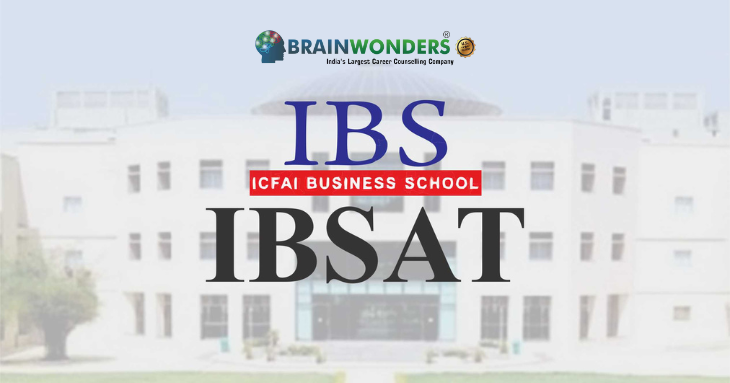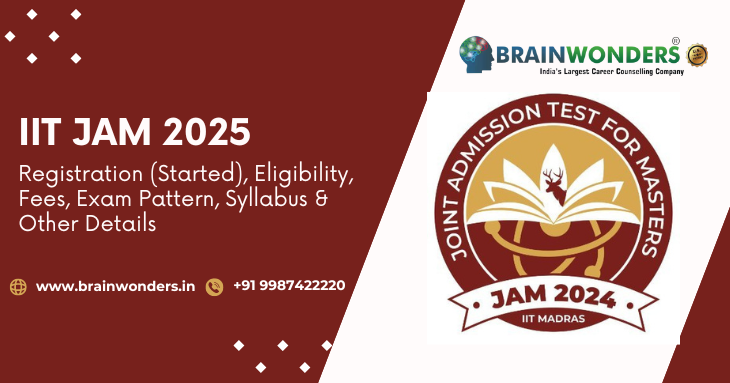

Take Brainwonders Career Test and make the right decisions for your college and course ahead
Let your unique personality, strengths, and traits guide to make the best decdision of your life!
Blog
09 April,2023 | By Brainwonders

Commerce is a highly diverse field that provides a wealth of opportunity for students upon completion of their 12th grade studies. It offers a variety of professional courses including management, finance, and banking which allow individuals to foster extensive knowledge in the area as well as develop essential skills for future advancement. There are various short-term programs such as Diploma in Finance and Banking as well as degree programs such as B.Com in Banking, BBA (Hons) Finance and Banking. With its stability, growth potential, and development opportunities across sectors, commerce presents an attractive career option for those looking to expand their experience and abilities. Pursuing a career in this field can open up numerous prospects while providing a secure and rewarding lifestyle.
Every student must be aware of the professional as well as management course. But there are even students who have heard of banking courses but still do not have an idea about it. In this blog, we will mainly focus on banking courses that will help you in the banking, finance, insurance, and stock market sectors. What are banking courses? Which course is best for banking after 12th? What is the scope of the banking sector? We will be answering each of these questions and providing you with detailed information about it.
Finance and banking correspond to a more specialised work sector. Hence most of the banking courses in India provide banking and finance degree courses. Moreover, students who want to start their career journey in the banking sector opt for the mentioned degree courses:
Diploma courses focus on providing practical knowledge to students. Diploma programs in Banking are generally intended for both 12th and graduate students. This course helps them equip essential skills based on knowledge of the banking sector. Diploma courses mostly consist of one or two years. Given below is the list of diploma banking courses after 12th commerce which you can avail yourself:
Listed below is the list of short-term banking courses which any commerce student can avail of:
Some specific banking courses help you get scalable jobs in foreign or international banks. We have mentioned those courses. The listed courses are a bit difficult to crack, but you will have a remarkable career in banking once you crack them.
Several leading Indian banks, including SBI, Axis Bank, Yes Bank, and ICICI Bank, provide certificate banking courses to those looking to advance their careers. Here are some options for courses:
| Courses | Conducted By |
| Certificate Program in General Insurance | SBI |
| Post Graduate Diploma in Retail Banking | Axis Bank |
| Post Graduate Program in Branch Banking Services | Yes Bank |
| Trade Finance Program | HDFC Bank |
| Probationary Officers Programme Post Graduate Diploma in Banking | ICICI Bank |
Some students want to get into the banking field, but they are average at maths, for them also the banking courses are made available. Let's have a banking course without maths:
Banking certifications courses help the students get skill-based knowledge and information about several major specialisations in banking: certification courses are available for beginners and working professionals to gain expertise and knowledge in this field. Let's have a look at banking certification courses which one can avail:
In order to get a supervised position in the banking sector, one must complete a master's degree. Pursuing the master's degree will be beneficial in the longer run, which will bring extensive employment opportunities across the private and public banking sectors. Let's have a look at the major masters banking courses:
In addition to completing the banking courses after 12th commerce, you will be dealing with a wide variety of information and data on a regular basis. Therefore, you have the skills which help do the work as well as provide you with in-depth regular insight. Mentioned below are the essential skills which are required on the part of the candidates who will be working in the banking sector in the near future.
| Colleges | Location |
| Narsee Monjee Institute of Management Studies | Mumbai |
| Bharti Vidyapeeth Institute of Management and Entrepreneurship Development | Pune |
| University of Petroleum and Energy Studies | Dehradun |
| NIMS University | Jaipur |
| Chandigarh University | Chandigarh |
| Sharda University School of Business Studies | Noida |
| Amity University | Gurgaon |
| Chitkara Business School | Patiala |
Banking examinations appear to be difficult to pass in general. However, studying the correct banking courses after 12th class and having an efficient preparation approach is beneficial. As a result, we have gathered a few pointers to assist you in mastering your banking exams:
Most students choose a banking career due to the various benefits. A few of these benefits are listed below:
For a developing country like India, banks are considered the main pillar of the country's economy. The banking sector in India is rising at an augmenting rate and is among the fastest growing industries. The rapid advancement, development and growth in the banking sector have paved the way for numerous career opportunities. It will develop more and more because private banks are gearing up. All of these will certainly bring impeccable employment opportunities in future.
The breadth of the banking business is rather broad; bank positions allow their respective personnel to operate in a variety of locations ranging from developed metropolia to isolated areas. Bank positions are safe since most banks have a no-fire policy.
The banking sector in India is growing at an alarming rate. Nationalised banks started to be established, but international banks were also established because of the increasing Indian economy. The banking field is diverse and allows its employees to work across various fields and sectors of banking.
The candidates need a bachelor's degree to be eligible to become the bank PO. Furthermore, a skilled candidate has an outlook to rise higher quickly to a superior position in banking. Therefore, a career in banking is a perfect choice for students who have an interest in doing multiple tasks and love to have experience.
The following is a list of the world's most sought and desired top banking and finance campus recruiters. This will give everyone an idea of which organisation to pursue when they begin their banking career.
After reading the blog, we hope that you will find the right banking course that helps you stay motivated and succeed in your career as a banker.
Unsure or unaware about your career, visit Brainwonders. We are here to help you by providing Career Counselling, DMIT Tests, Aptitude Tests, Personality Tests and IQ Tests. So get in touch with us; we will assist you in the best possible way!
Q.1) How can someone get into big firms like J.P. Morgan?
Ans: It is important to understand that landing a job at a large firm requires exceptional aptitude and dedication. First, individuals must possess a sound knowledge base in critical areas of expertise, including finance, accounting, and economics. Relevant industry experience and credentials are also key components for successful entry into these firms. It is advisable to network with industry professionals who can guide the application process. Lastly, having a well-rounded education such as that provided by an MBA program shows prospective employers that candidates have the capability and drive to excel in their careers.
Q.2) Why go for a banking career?
Ans: Banks offer a variety of roles, each with its unique set of qualifications, responsibilities, and rewards. Whether your interest lies in retail banking, corporate banking, investment banking, or other areas, numerous options suit different skill sets and goals.
When researching bank careers, it's important to consider base salary and bonuses, career advancement possibilities, and job satisfaction. Many positions also require specialized knowledge, so it's wise to become familiar with the field to gain a competitive edge over other applicants.
Q.3) What are the benefits of having a career in banking?
Ans: Working in banking can provide job stability and financial security. Bankers use their economic knowledge to help customers reach their financial goals. A career in banking also offers opportunities to develop problem-solving, analytical, and interpersonal skills. Banks also offer a wide range of roles, from customer service to investment analysis, allowing employees to specialize in an area of their interest. Banking professionals can also build strong relationships with clients and colleagues, helping them create trusted partnerships that are beneficial in the long term. Finally, those working in banking often benefit from attractive packages, including bonuses and other perks.
Q4) which course is best for banking after 12th?
Ans: The best course for banking after completing 12th grade is typically a Bachelor's degree in Commerce (B.Com) or a Bachelor's in Business Administration (BBA) with a specialization in Banking and Finance. These courses provide a strong foundation in financial and accounting principles, which are essential for a career in banking. Pursuing relevant certifications like Chartered Accountancy (CA) or Certified Public Accountant (CPA) can further enhance your qualifications for a banking career.
Q.5) Banking Courses after Graduation?
Ans: After graduation, you can consider pursuing specialized banking courses such as a Master of Business Administration (MBA) in Banking and Finance, Post Graduate Diploma in Banking (PGDB), or Chartered Financial Analyst (CFA) certification. These courses can provide advanced knowledge and skills that are highly valuable for a career in banking.
Recommended Read:
Take Brainwonders Career Test and make the right decisions for your college and course ahead



,_Syllabus,_Pattern,_Old_Question_Papers.png)

